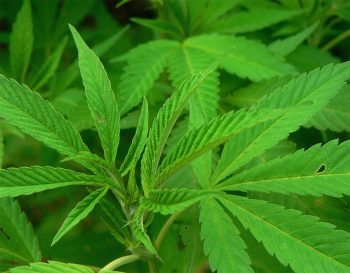By Marco Torres
Guest writer for Wake Up World
In a first of a kind study, Washington State University scientists examined how peoples’ self-reported levels of stress, anxiety and depression were affected by smoking different strains and quantities of cannabis at home.
Their work, published this month in the Journal of Affective Disorders, suggests smoking cannabis can significantly reduce short-term levels of depression, anxiety, and stress.
Anxiety and depression are pathologies that affect human beings in many aspects of life, including social life, productivity and health. Cannabidiol (CBD) is a constituent non-psychotomimetic of Cannabis Sativa with great psychiatric potential, including uses as an antidepressant-like and antianxiety-like compound.
Cannabis acts on both types of receptors which are distributed mainly in the brain and immune system, respectively. In the brain, CB1 receptors are also targeted by endogenous cannabinoids (i.e., endocannabinoids).
This new study marks one of the first attempts by U.S. scientists to assess how cannabis strains with varying concentrations of the chemical compounds tetrahydrocannabinol (THC) and cannabidiol (CBD) affect medicinal cannabis users’ feelings of wellbeing when smoked outside of a laboratory.
“Existing research on the effects of cannabis on depression, anxiety and stress are very rare and have almost exclusively been done with orally administered THC pills in a laboratory,” said Carrie Cuttler, clinical assistant professor of psychology at WSU and lead author of the study. “What is unique about our study is that we looked at actual inhaled cannabis by medical marijuana patients who were using it in the comfort of their own homes as opposed to a laboratory.”
For example, the WSU research team found that one puff of cannabis high in CBD and low in THC was optimal for reducing symptoms of depression, two puffs of any type of cannabis was sufficient to reduce symptoms of anxiety, while 10 or more puffs of cannabis high in CBD and high in THC produced the largest reductions in stress.
“A lot of consumers seem to be under the false assumption that more THC is always better,” Cuttler said. “Our study shows that CBD is also a very important ingredient in cannabis and may augment some of the positive effects of THC.”
The researchers also found that while both sexes reported decreases in all three symptoms after using cannabis, women reported a significantly greater reduction in anxiety following cannabis use.
Data for the study were taken from the trademarked app Strainprint, which provides medical cannabis users a means of tracking how different doses and types of cannabis affect a wide variety of symptoms of well-being.
Strainprint users rate the symptoms they are experiencing before using cannabis on a scale of 1-10 and then input information about the type of cannabis they are using. Twenty minutes after smoking, they are prompted to report how many puffs they took and to rerate the severity of their symptoms.
Cuttler and WSU colleagues Alexander Spradlin and Ryan McLaughlin used a form of statistical analysis called multilevel modeling to analyze around 12,000 anonymous Strainprint entries for depression, anxiety and stress. The researchers did not receive any of the Strainprint users personally identifying information for their work.
“This is to my knowledge one of the first scientific studies to provide guidance on the strains and quantities of cannabis people should be seeking out for reducing stress, anxiety and depression,” Cuttler said. “Currently, medical and recreational cannabis users rely on the advice of bud tenders whose recommendations are based off of anecdotal not scientific evidence.”
The study is among several cannabis-related research projects currently underway at WSU, all of which are consistent with federal law and many of which are funded with Washington state cannabis taxes and liquor license fees.
Sources:
Recommended articles by Marco Torres:
- The Endocannabinoid System and How THC Cures Cancer
- Cannabis Treats Anxiety, Depression and Activates Brain Pathways That Regulate Emotional Behavior
- Study Shows The Therapeutic Effects of Marijuana on Autistic Children
- 5 Diseases Proven To Respond Better To Cannabis Than Prescription Drugs
- Another Reason Marijuana is Illegal: It Prevents the Spread of HIV
- 4 Diseases That Can Be Reversed Naturally Without Pharmaceutical Drugs
- 5 Reasons to Juice Rather Than Smoke Cannabis
- Woman Shrinks Inoperable Mass, Heals Her Thyroid Disease With Cannabis Oil
- Still Believe Nature Got It Wrong? Top 10 Health Benefits of Marijuana
- How Cannabis Can End the Use of Dangerous Prescription Pain Killers
About the author:
Marco Torres is a research specialist, writer and consumer advocate for healthy lifestyles. He holds degrees in Public Health and Environmental Science and is a professional speaker on topics such as disease prevention, environmental toxins and health policy. This article republished from Prevent Disease.

If you've ever found value in our articles, we'd greatly appreciate your support by purchasing Mindful Meditation Techniques for Kids - A Practical Guide for Adults to Empower Kids with the Gift of Inner Peace and Resilience for Life.
In the spirit of mindfulness, we encourage you to choose the paperback version. Delve into its pages away from screen glare and notifications, allowing yourself to fully immerse in the transformative practices within. The physical book enriches the learning process and serves as a tangible commitment to mindfulness, easily shared among family and friends.
Over the past few years, Wake Up World has faced significant online censorship, impacting our financial ability to stay online. Instead of soliciting donations, we're exploring win-win solutions with our readers to remain financially viable. Moving into book publishing, we hope to secure ongoing funds to continue our mission. With over 8,500 articles published in the past 13 years, we are committed to keeping our content free and accessible to everyone, without resorting to a paywall.







